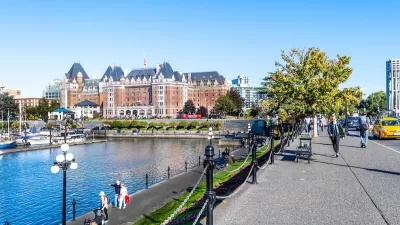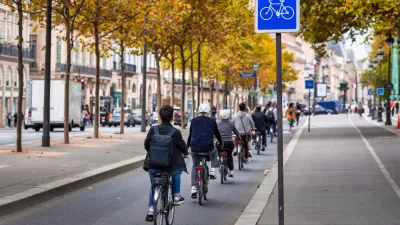Has the profession given in to corporate interests, and is there another way forward?

In an article in Yes Magazine, Marianne Dhenin asserts that “today, cities are being planned and developed to serve the interests of elites and big corporations rather than the communities that call them home.”
Using an example from Philadelphia, Dhenin shows how “adverse outcomes of planning and design decisions are shouldered disproportionately by already marginalized groups, including poor communities and communities of color,” arguing that this is more of a feature than a bug. According to planning history and theory professor and author of Against the Commons: A Radical History of Urban Planning Álvaro Sevilla-Buitrago, “This is not the dark side of planning … This is planning.”
Dhenin points to the more subtle ways that planning undermines communities in the post-urban renewal era, when wholesale displacement is more frowned upon, such as ‘defensive urban design,’ which makes public spaces hostile to people.
But there is another way, Sevilla-Buitrago says. Dhenin describes grassroots campaigns in Philadelphia and Oakland that buck the trend by fighting for community land trusts that put more power in the hands of low-income residents. While these effort were led by everyday people passionate about their communities, “Professional planners still have a vital role to play in reorienting urban space to better serve the people.” Planners can support community-oriented efforts by connecting local governments to marginalized groups, elevating their voices in the planning process, and working to keep the city accountable to its most vulnerable residents.
FULL STORY: Urban Planning for the People

Study: Maui’s Plan to Convert Vacation Rentals to Long-Term Housing Could Cause Nearly $1 Billion Economic Loss
The plan would reduce visitor accommodation by 25,% resulting in 1,900 jobs lost.

North Texas Transit Leaders Tout Benefits of TOD for Growing Region
At a summit focused on transit-oriented development, policymakers discussed how North Texas’ expanded light rail system can serve as a tool for economic growth.

Alabama: Trump Terminates Settlements for Black Communities Harmed By Raw Sewage
Trump deemed the landmark civil rights agreement “illegal DEI and environmental justice policy.”

How Community Science Connects People, Parks, and Biodiversity
Community science engages people of all backgrounds in documenting local biodiversity, strengthening connections to nature, and contributing to global efforts like the City Nature Challenge to build a more inclusive and resilient future.

Alabama: Trump Terminates Settlements for Black Communities Harmed By Raw Sewage
Trump deemed the landmark civil rights agreement “illegal DEI and environmental justice policy.”

Dear Tesla Driver: “It’s not You, It’s Him.”
Amidst a booming bumper sticker industry, one writer offers solace to those asking, “Does this car make me look fascist?”
Urban Design for Planners 1: Software Tools
This six-course series explores essential urban design concepts using open source software and equips planners with the tools they need to participate fully in the urban design process.
Planning for Universal Design
Learn the tools for implementing Universal Design in planning regulations.
City of Santa Clarita
Ascent Environmental
Institute for Housing and Urban Development Studies (IHS)
City of Grandview
Harvard GSD Executive Education
Toledo-Lucas County Plan Commissions
Salt Lake City
NYU Wagner Graduate School of Public Service




























